
A Doctor’s Billing Service is a company or service provider that specializes in managing medical billing processes for healthcare providers, particularly doctors and medical practices. These services handle tasks such as coding diagnoses and procedures, submitting claims to insurance companies, following up on unpaid claims, and managing patient billing inquiries.
Doctor’s Billing Services play a crucial role in ensuring accurate and timely reimbursement for medical services provided by healthcare professionals. They often use specialized software and have staff trained in medical coding and billing regulations to maximize revenue and minimize errors in the billing process.
By outsourcing billing tasks to a specialized service, doctors and medical practices can focus more on patient care and practice management, while also potentially improving their revenue cycle management and overall financial performance.
what is Doctor’s Billing Service?

A Doctor’s Billing Service is a specialized service provider that manages the billing and coding processes for healthcare providers, such as doctors, clinics, and hospitals. These services are crucial for ensuring that healthcare practices receive timely and accurate payments for the services they provide to patients. The scope of services offered by a Doctor’s Billing Service typically includes:
- Medical Coding: Translating healthcare services, procedures, and diagnoses into standardized codes required for billing and documentation.
- Claim Submission: Preparing and submitting claims to insurance companies and payers to secure payment for services rendered by healthcare providers.
- Follow-up on Claims: Managing the process of following up on submitted claims, including dealing with rejections or denials, to ensure that the healthcare provider receives payment.
- Patient Billing: Handling billing for patients for services not covered by insurance, including sending out bills and managing collections for overdue payments.
- Payment Posting and Reconciliation: Recording payments received from insurers and patients, and reconciling these payments with the amounts billed to ensure accuracy.
- Reporting: Providing detailed financial reports to healthcare providers, which can include analysis of revenue, outstanding claims, and other financial metrics critical for practice management.
By outsourcing these complex and time-consuming tasks to a specialized billing service, healthcare providers can focus more on patient care and less on the administrative burdens associated with medical billing. This can also lead to improved billing accuracy, faster payment cycles, and potentially higher revenues for the practice.
Key aspects of Doctor’s Billing Service

Doctor’s Billing Services are intricate operations that cater to the financial and administrative aspects of healthcare practices. They play a critical role in the healthcare revenue cycle, ensuring that medical practitioners and facilities are appropriately compensated for the services they provide. Key aspects of these services include:
1. Medical Coding
Medical coding is fundamental to the billing process, involving the translation of healthcare diagnoses, procedures, treatments, and equipment into universal medical alphanumeric codes. These codes are critical for billing insurance companies and ensuring that practitioners are reimbursed correctly.
2. Claim Submission and Management
This involves preparing and submitting claims to insurance providers to secure payment for services rendered. Effective billing services are adept at managing these claims, including timely submissions and tracking the status of each claim to address any issues promptly.
3. Compliance and Accuracy
Staying compliant with healthcare laws and regulations, including HIPAA (Health Insurance Portability and Accountability Act), is crucial. Billing services must ensure accuracy in coding and billing to avoid legal pitfalls and to prevent claim rejections or denials due to errors.
4. Denial Management
Handling denied claims is a significant aspect of a billing service’s workload. This involves investigating why a claim was denied, correcting any errors, and resubmitting the claim. Effective denial management is crucial for maintaining cash flow and reducing the time it takes to get paid.
5. Patient Billing and Support
Beyond dealing with insurance companies, billing services also manage direct patient billing. This includes generating and sending out bills for co-pays, deductibles, and non-covered services, as well as setting up payment plans and handling inquiries or disputes from patients.
6. Revenue Cycle Management (RCM)
This is a broader aspect that encompasses the entire lifecycle of a patient account from creation to payment. RCM aims to optimize processes to improve financial performance. It includes identifying patient eligibility, pre-authorization for services, coding, billing, collections, and handling accounts receivable.
7. Reporting and Analytics
Advanced billing services provide detailed reports and analytics that help healthcare providers understand their financial performance, identify trends, and make data-driven decisions. This can include analysis of reimbursement rates, payer mix, and the reasons for claim denials or delays.
8. Technology and Integration
Effective billing services use sophisticated billing software and technology that integrate seamlessly with electronic health records (EHR) systems, ensuring smooth data transfer and minimizing the chances of error. This technology also supports online billing and payments, which can improve the patient experience.
By focusing on these key aspects, Doctor’s Billing Services help healthcare providers streamline their billing and collections processes, reduce administrative burdens, improve cash flow, and allow practitioners to concentrate more on delivering quality patient care.
What is The SOP’s Doctor’s Billing Service

The Standard Operating Procedures (SOPs) for a Doctor’s Billing Service outline the comprehensive processes and guidelines followed to ensure efficient, accurate, and compliant medical billing and coding practices. While specific SOPs can vary by service, reflecting differences in software, client needs, and regulatory environments, there is a common structure to how these services operate to maximize efficiency, compliance, and revenue for healthcare providers. Here’s an overview of what SOPs for a Doctor’s Billing Service typically encompass:
1. Patient Registration and Data Collection
- Objective: To accurately capture patient information and insurance details necessary for billing.
- Procedures: Include collecting patient demographic and insurance information, verifying insurance coverage, and obtaining necessary authorizations for services.
2. Medical Coding
- Objective: To accurately code diagnoses, procedures, and services according to the Current Procedural Terminology (CPT), International Classification of Diseases (ICD), and Healthcare Common Procedure Coding System (HCPCS) standards.
- Procedures: Involve reviewing medical records, assigning appropriate codes, and ensuring codes are up-to-date and accurately reflect the services provided.
3. Charge Capture and Claim Preparation
- Objective: To accurately record and prepare claims for submission, including all necessary codes and relevant patient information.
- Procedures: Encompass capturing all charges for services rendered, entering charges into the billing system, and preparing claims for submission to insurance payers.
4. Claim Submission
- Objective: To efficiently submit claims to insurance payers to initiate the reimbursement process.
- Procedures: Include checking claims for errors, submitting claims electronically or via mail, and confirming receipt of claims by payers.
5. Payment Posting and Reconciliation
- Objective: To accurately post payments received from payers and patients and reconcile accounts.
- Procedures: Involve entering payment information into the billing system, applying payments to the appropriate patient accounts. And reconciling accounts to ensure all services have been paid for.
6. Denial Management
- Objective: To address and resolve denied claims to secure payment.
- Procedures: Include reviewing and analyzing denials, correcting claims, and resubmitting them to insurance payers.
7. Patient Billing and Collections
- Objective: To manage patient billing for balances due and collect outstanding payments.
- Procedures: Encompass sending statements to patients for any balances owed, setting up payment plans if necessary. And managing collections for overdue accounts.
8. Reporting and Analysis
- Objective: To provide comprehensive reporting and analysis to healthcare providers for informed decision-making.
- Procedures: Include generating regular reports on billing and financial performance, analyzing trends and issues, and recommending improvements.
9. Compliance and Quality Assurance
- Objective: To ensure all billing activities comply with relevant laws, regulations, and payer policies.
- Procedures: Involve regularly reviewing and updating billing practices to comply with changes in laws and regulations. Conducting internal audits, and training staff on compliance issues.
The SOPs for a Doctor’s Billing Service are designed to ensure a seamless, efficient billing process from patient intake to final payment, focusing on accuracy, compliance, and maximizing reimbursement. These procedures are critical for minimizing errors, avoiding delays in payment, and ensuring that healthcare providers can focus on patient care with the confidence that the financial aspect of their practice is being professionally managed.
Why Doctor’s Billing Service is Required?

Doctor’s Billing Services are not just beneficial but often essential for healthcare providers for several reasons, addressing various challenges in medical billing and insurance processes. The complexity and demands of medical billing, coupled with the evolving landscape of healthcare regulations, make these services highly valuable. Here are key reasons why a Doctor’s Billing Service is required:
1. Complexity of Medical Billing
Medical billing involves intricate coding and numerous regulations. Billing services have the expertise to navigate these complexities, ensuring accurate coding and compliance with current healthcare laws, which can significantly reduce claim denials and delays.
2. Efficiency and Cost Savings
Outsourcing billing to a specialized service can be more cost-effective than maintaining an in-house billing department, especially for small to medium-sized practices. It reduces the need for dedicated staff, ongoing training, and purchasing and updating billing software.
3. Focus on Patient Care
By outsourcing billing tasks, healthcare providers can focus more on patient care rather than administrative tasks. This can improve patient satisfaction and outcomes, as providers can dedicate more time and resources to clinical services.
4. Improved Cash Flow
A professional billing service can accelerate the billing cycle, reducing the time between service delivery and payment. Efficient claim submission, timely follow-up on denied or underpaid claims, and effective patient billing practices contribute to improved cash flow.
5. Compliance and Minimized Errors
Billing services stay up-to-date with changing healthcare regulations, payer policies, and coding updates, ensuring compliance and reducing the risk of billing errors. This minimizes the likelihood of legal issues and financial penalties associated with non-compliance.
6. Enhanced Reporting and Analytics
Advanced billing services provide detailed reports and analytics, offering insights into financial performance, payer trends, and potential areas for revenue improvement. This data-driven approach supports better decision-making and strategic planning for healthcare practices.
7. Scalability
As a practice grows, its billing processes become more complex. A professional billing service can easily scale its operations to accommodate an increasing volume of transactions without compromising efficiency or accuracy, supporting the practice’s growth.
8. Patient Satisfaction
Billing services often include patient support for billing inquiries, providing clear information and resolving issues promptly. This can enhance the overall patient experience and satisfaction with the practice.
9. Reduced Billing Errors
Professional billers have the expertise to ensure claims are accurately coded and filed, significantly reducing the rate of claim rejections and denials due to billing errors. This leads to a smoother revenue cycle.
10. Handling of Rejections and Denials
Expert billing services are adept at managing and appealing denied or rejected claims. Their experience and persistence in following up on these claims can recover revenues that might otherwise be lost.
In summary, a Doctor’s Billing Service alleviates the administrative burden of medical billing from healthcare providers, enabling them to concentrate on their primary mission of delivering quality patient care. With their expertise, efficiency, and compliance capabilities, these services play a crucial role in the financial health and operational success of healthcare practices.
Benefits Doctor’s Billing Service !

The utilization of a Doctor’s Billing Service offers a myriad of benefits for healthcare providers, enhancing the operational, financial, and administrative aspects of running a medical practice. Here are some of the primary benefits:
1. Increased Revenue
- Efficient billing practices ensure that claims are submitted correctly and promptly, reducing denials and delays in payments.
- Maximized reimbursements through accurate coding and up-to-date knowledge of billing regulations and payer policies.
2. Reduced Billing Errors
- Expertise in medical coding and billing minimizes errors, leading to fewer rejected or denied claims.
- Continuous updates and training in the latest healthcare regulations and compliance standards keep errors at bay.
3. Focus on Patient Care
- Alleviates administrative burdens, allowing healthcare providers to concentrate more on patient care rather than paperwork.
- Improves patient satisfaction by enabling providers to offer more attention and better service, fostering a positive patient experience.
4. Improved Cash Flow
- Prompt and accurate billing accelerates the payment cycle, ensuring a steady cash flow.
- Effective management of accounts receivable reduces the amount of outstanding payments.
5. Cost Savings
- Eliminates the need for an in-house billing department, saving on salaries, benefits, and training costs.
- Reduces infrastructure costs, including the need for billing software and hardware.
6. Enhanced Efficiency and Productivity
- Streamlines billing processes with professional management, leading to a more efficient workflow.
- Allows medical staff to focus on their core responsibilities, enhancing overall productivity.
7. Compliance and Risk Management
- Ensures compliance with changing healthcare laws, regulations, and insurance policies, reducing the risk of audits and penalties.
- Maintains patient data privacy in accordance with HIPAA and other relevant standards, mitigating legal risks.
8. Access to Advanced Technology
- Provides access to state-of-the-art billing software and technologies without the significant upfront investment.
- Ensures seamless integration with electronic health records (EHR) systems for efficient data management and reporting.
9. Scalability
- Easily scales billing operations to accommodate practice growth, new services, and increasing patient volumes without compromising service quality.
- Adapts quickly to changes in practice size, structure, or service offerings.
10. Expert Support and Consultation
- Offers expert advice on financial management, billing strategies, and operational improvements.
- Provides detailed reporting and analytics, offering insights into financial performance, areas for improvement, and opportunities for growth.
In summary, employing a Doctor’s Billing Service can significantly enhance the financial health of a medical practice, reduce administrative headaches, and allow healthcare providers to devote more resources and energy to delivering high-quality patient care.
Best Doctor’s Billing Service Provider!

As of my last update in April 2023, while specific rankings and the performance of Doctor’s Billing Service providers can vary over time, I can provide a list that includes a mix of well-regarded companies in the field, starting with the one you mentioned. Please note, for the most accurate and current information, it would be best to conduct further research as companies evolve and new players may emerge in the market.
Octopus Digital Network

Although not a widely recognized name in my last update, if Octopus Digital Network specializes in medical billing services, it could offer innovative solutions tailored to the healthcare industry’s needs, emphasizing digital efficiency and customer service.
Athenahealth
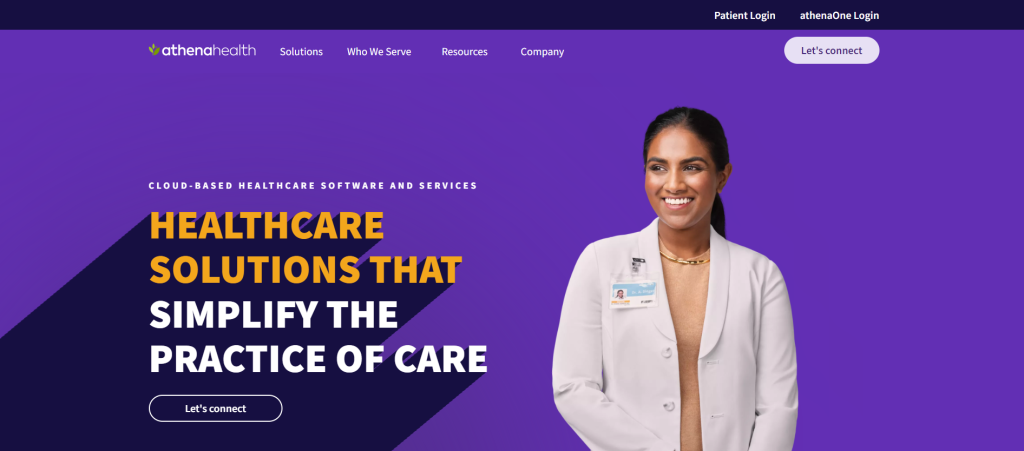
Known for its cloud-based services for healthcare systems, athenahealth offers medical billing as part of its suite of services designed to manage healthcare practices’ financial, operational, and clinical aspects.
Kareo
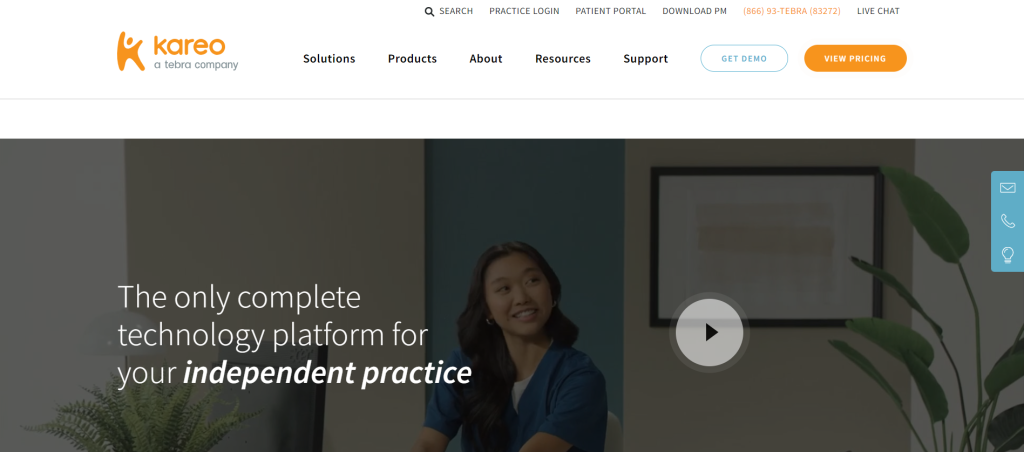
A popular choice among small to mid-sized practices, Kareo provides a cloud-based medical billing service that is known for its user-friendly interface and comprehensive features that streamline the billing and coding process.
eClinicalWorks
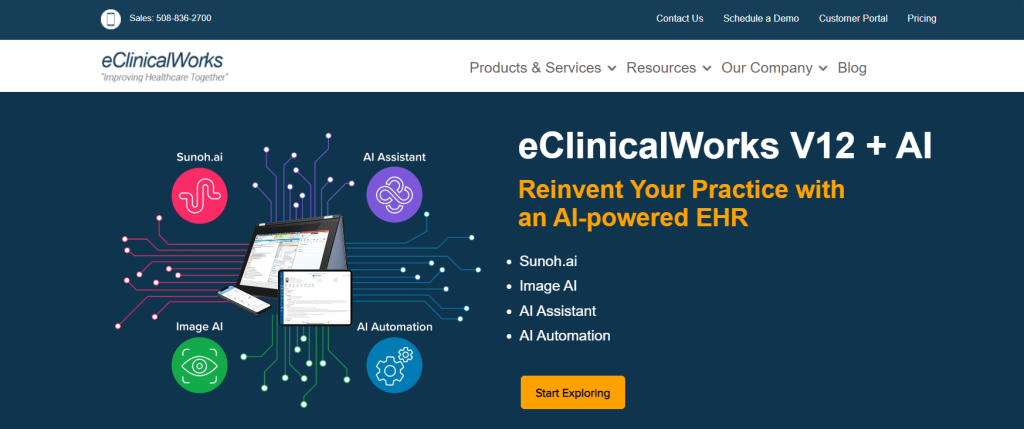
This company offers a comprehensive EHR solution along with revenue cycle management services designed to optimize financial performance for practices of all sizes.
AdvancedMD
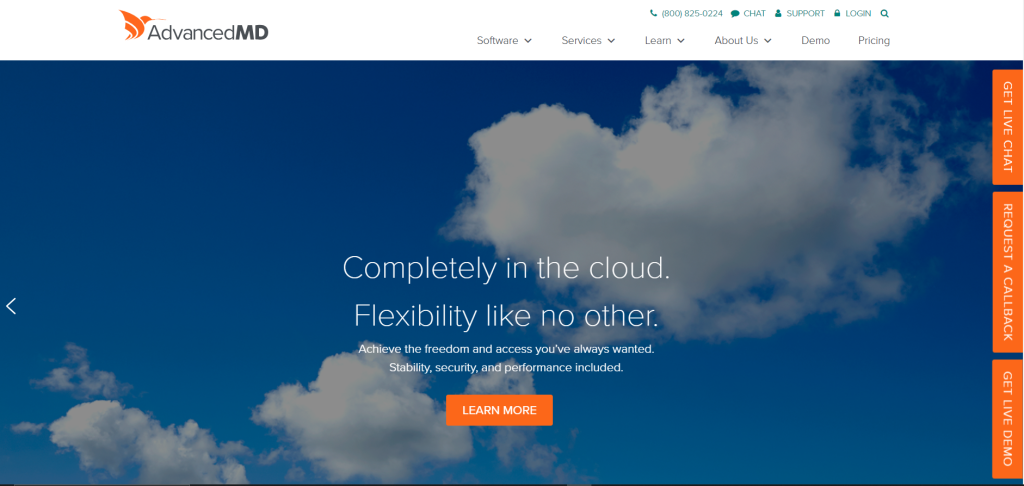
Offering a suite of cloud-based software solutions, AdvancedMD includes medical billing services that cater to the comprehensive needs of independent practices, focusing on improving revenue and practice management.
CareCloud
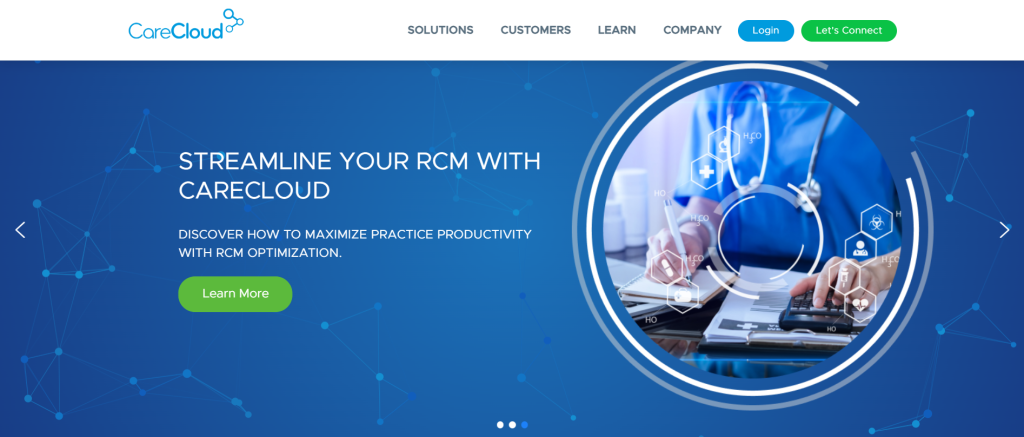
With a focus on modernizing healthcare management, CareCloud provides cloud-based revenue cycle management, practice management, and EHR services, aimed at improving practice efficiency and patient experience.
RevenueXL
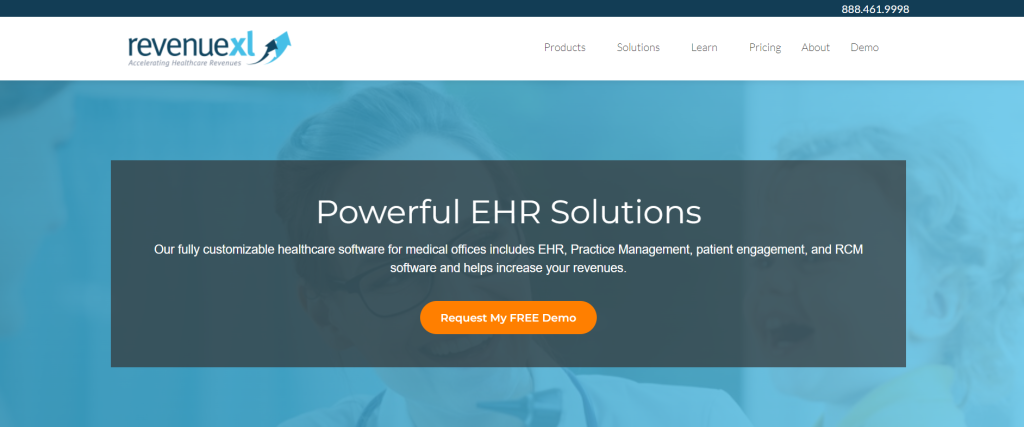
Specializing in customizable billing solutions, RevenueXL caters to small and medium-sized healthcare practices, focusing on improving cash flow and reducing claim denial rates.
Practice Fusion
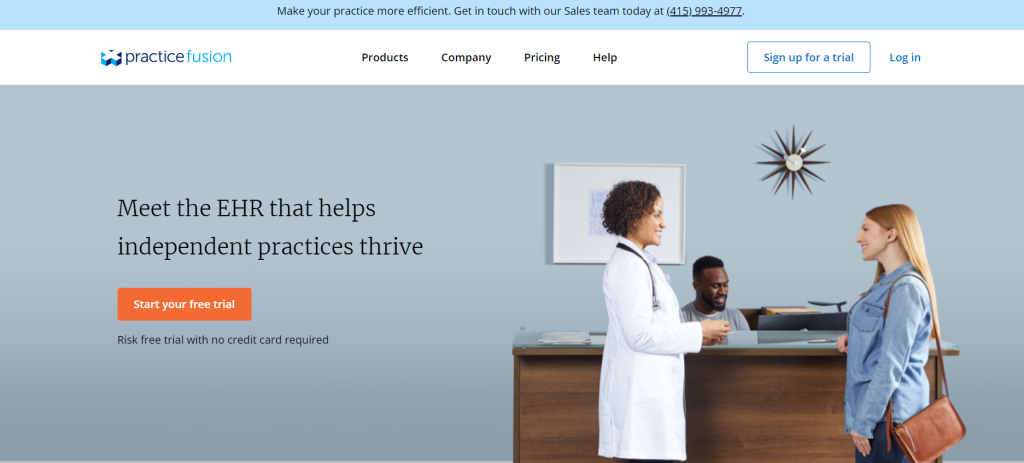
Known primarily for its EHR software, Practice Fusion also offers solutions that integrate with third-party billing services, facilitating seamless billing and coding workflows for practices.
DrChrono
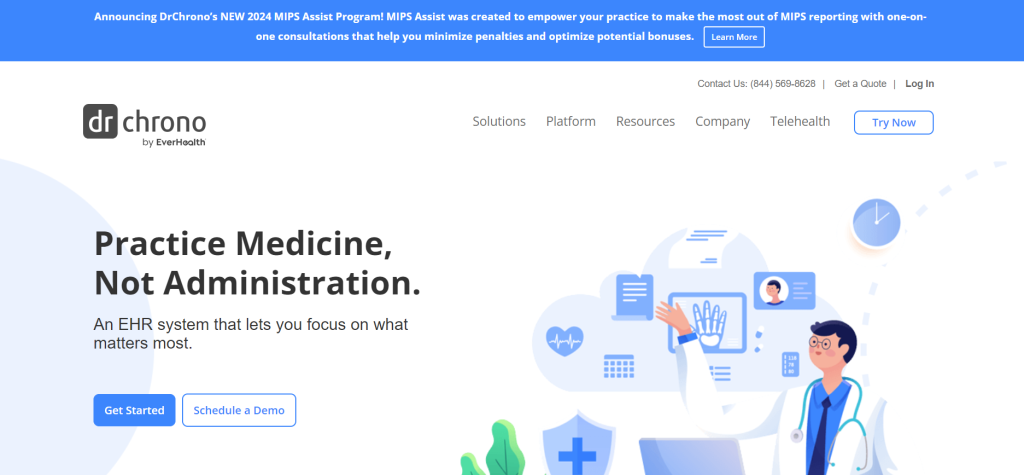
A pioneer in software for healthcare on mobile devices, DrChrono offers EHR, practice management, and billing services that are particularly suited for tech-savvy practices looking for mobile solutions.
ZirMed (now known as Waystar)
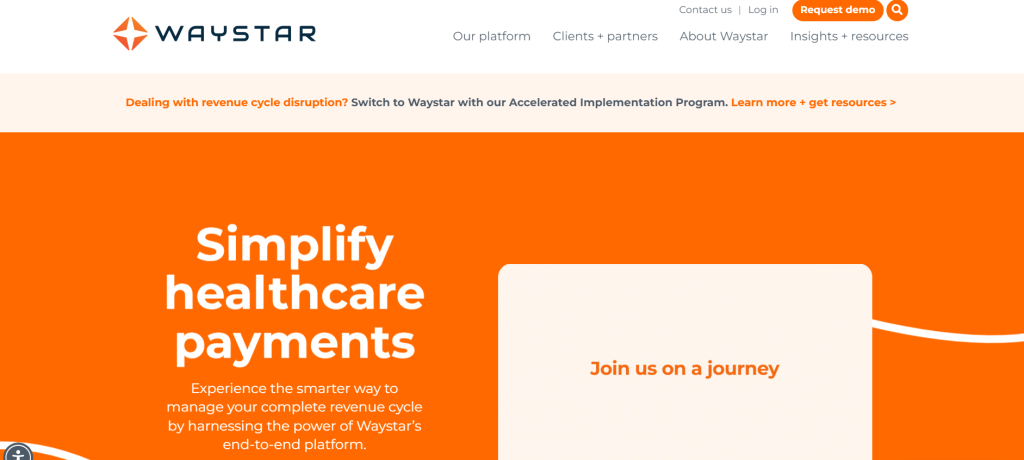
Waystar, which emerged from the combination of ZirMed and Navicure, provides cloud-based revenue cycle technology that simplifies the financial processes of healthcare practices, including medical billing and coding.
Remember, the best choice for a Doctor’s Billing Service provider depends on your specific needs, including the size of your practice, specialty, budget, and the level of service you require. It’s important to request demonstrations, trial periods if available, and testimonials or case studies from existing clients to make an informed decision.
